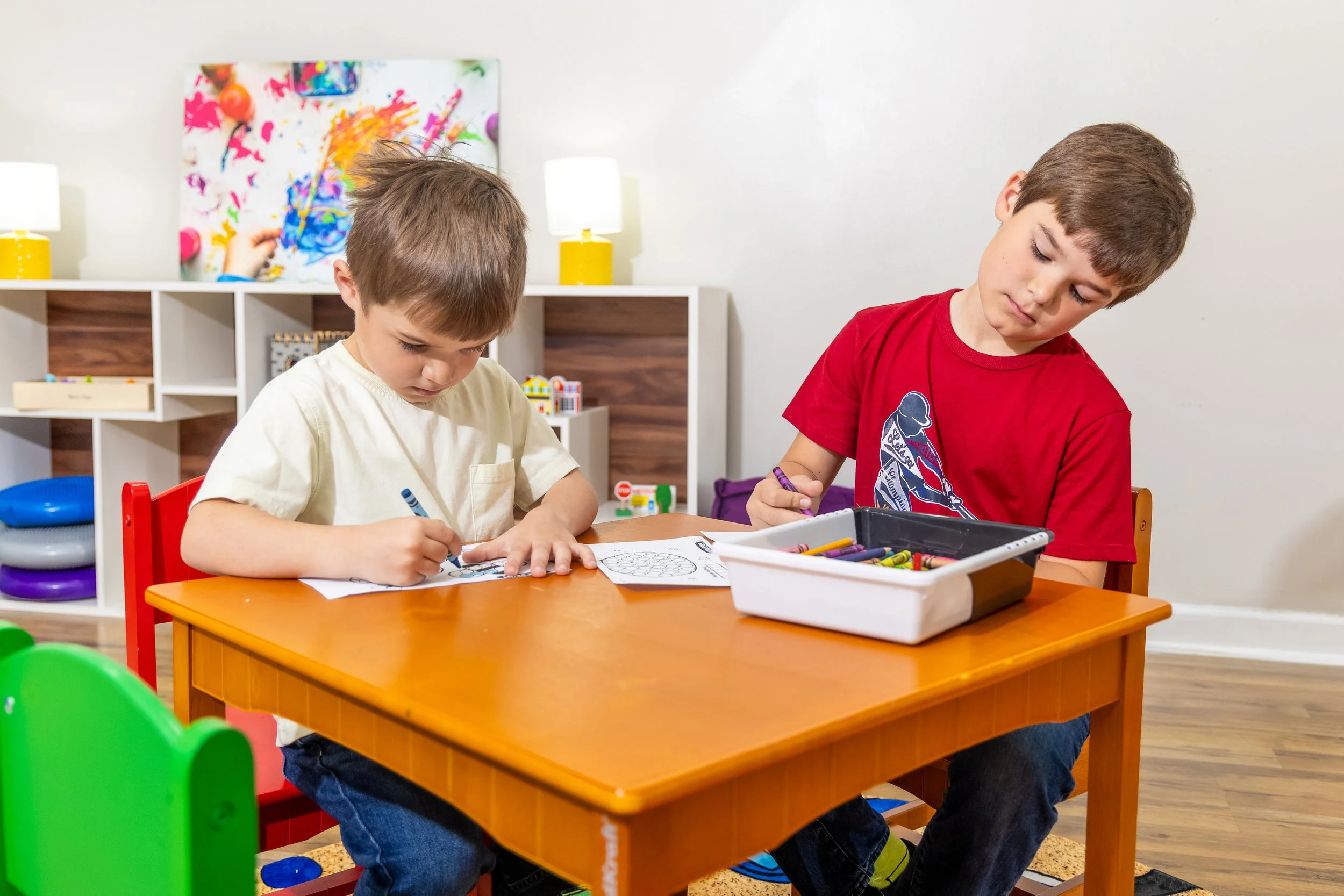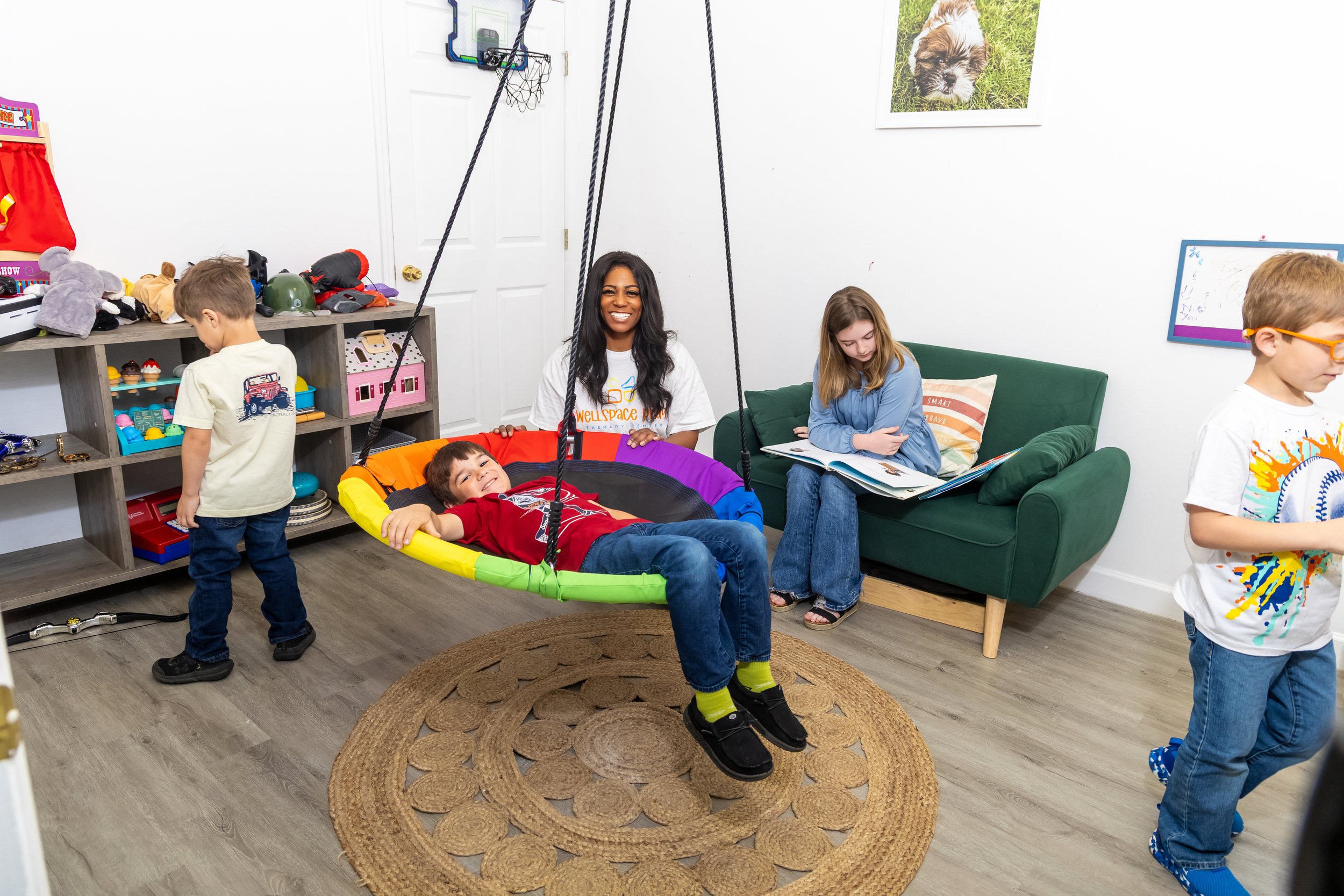
EMPOWERING GROWTH THROUGH PLAY IN THE MADISON & HUNTSVILLE AREAS OF ALABAMA
SERVICES
Wellspace Play Therapy
As a parent, it can be difficult to see your child struggling.
You may find it hard to understand why your child is acting the way they are. You may struggle to get through your chaotic days, full of school, work, extracurriculars, dinner, homework, and more, without becoming frustrated and yelling during another emotional outburst.
We understand your struggles and are here to provide some much-needed relief, coping skills, and practical strategies to help your family become more content and connected.
Have you noticed your child struggles with...
> AUTISM
> ADHD OR ADD
> SENSORY PROCESSING
> FIGHTING, HITTING AND YELLING
> DEPRESSION AND ANXIETY
> PROBLEMATIC BEHAVIOR IN SCHOOL
> INCREASED ANGER
> NEGATIVE SELF-TALK
> THOUGHTS OF SELF-HARM
> STRUGGLING TO MAKE FRIEND
> ADJUSTMENT TO DIVORCE OR STARTING SCHOOL

-
Through activities tailored to their developmental level, interests, and challenges, play-based interventions help children develop self-regulation skills, improve impulse control, enhance social skills, and explore and process their emotions, ultimately fostering a greater ability to manage ADHD symptoms.
-
Play-based interventions allow children to express their fears and worries in a non-threatening environment. Through play, children can explore and process their emotions, learn relaxation techniques, practice coping strategies, and build confidence, ultimately helping them to manage their anxiety symptoms more effectively.
-
Play-based interventions provide a structured and sensory-friendly environment where they can engage in activities tailored to their unique interests and abilities. Through play, children with autism can improve their social skills, communication abilities, emotional regulation, and sensory integration, improving their well-being.
-
Play -based interventions provides a safe space for them to express and explore their emotions. By engaging in imaginative and creative activities, children can learn to identify and communicate their feelings, develop problem-solving skills, practice impulse control, and discover healthier ways to manage and express anger.









